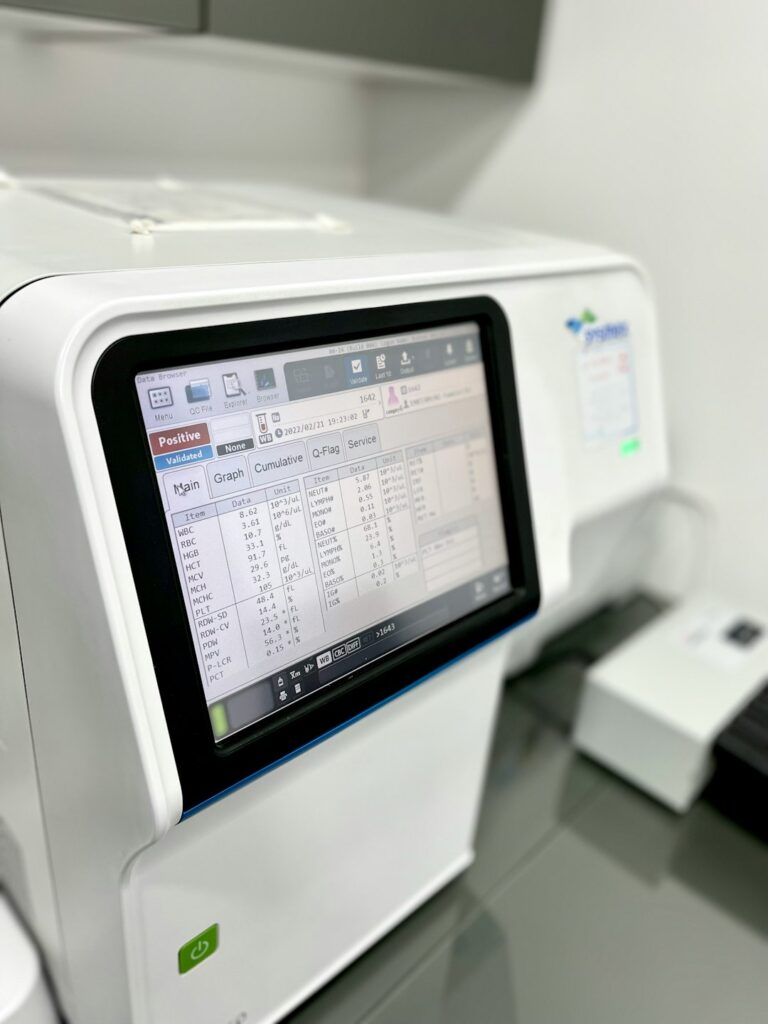AI Tools for HealthTech: Revolutionizing Health Diagnostics
In recent years, AI health diagnostics technology has emerged as a transformative force in the healthcare sector. This innovative technology leverages artificial intelligence to enhance diagnostic accuracy and streamline patient care. As healthcare challenges grow, the integration of AI tools is becoming imperative for improving health outcomes, reducing costs, and increasing efficiency.
The Role of AI in Health Diagnostics
AI health diagnostics technology plays a crucial role in modern medicine. By analyzing vast amounts of data, AI algorithms can provide insights that human practitioners may overlook. Here are some key areas where AI is making a significant impact:
- Early Detection of Diseases: AI can help identify diseases at their early stages, allowing for timely interventions.
- Predictive Analytics: Using historical data, AI can predict patient outcomes and assist in treatment planning.
- Personalized Medicine: AI tools can suggest tailored treatment options based on individual patient data.
Advantages of AI Health Diagnostics Technology
The implementation of AI in health diagnostics comes with numerous benefits:
- Increased Efficiency: AI tools automate time-consuming tasks, allowing healthcare professionals to focus on patient care.
- Enhanced Accuracy: Machine learning algorithms can reduce human error in diagnostic processes.
- Cost Reduction: By streamlining workflows, AI can potentially lower healthcare costs.
Applications of AI Tools in HealthTech
There are various applications of AI health diagnostics technology in HealthTech, enhancing both clinical and administrative functions:
1. Medical Imaging
AI-driven tools analyze medical images to detect conditions such as cancer, fractures, or infections. Radiology departments are increasingly using AI to assist radiologists in interpreting imaging results.
2. Virtual Health Assistants
AI chatbots and virtual health assistants provide patients with immediate access to medical advice and can triage symptoms, guiding users on when to seek professional help.
3. Electronic Health Records (EHR)
AI tools can analyze EHR data for insights on patient health trends, leading to better care decisions and population health management.
Challenges in Implementing AI in HealthTech
Despite the numerous advantages, the adoption of AI health diagnostics technology also presents challenges:
- Data Privacy Concerns: The use of patient data raises issues regarding consent and privacy protections.
- Integration into Existing Systems: Many healthcare facilities struggle to incorporate AI tools into current workflows.
- Regulatory Hurdles: Compliance with healthcare regulations can slow down innovation and deployment.
The Future of AI in Health Diagnostics
The future of AI health diagnostics technology is bright. As technologies advance, we can expect:
- Improved Algorithms: Ongoing research will enhance the accuracy and efficiency of AI algorithms.
- Wider Adoption: As healthcare organizations learn more about these tools, increased adoption is likely.
- Collaboration Between AI and Healthcare Professionals: AI will serve as an augmentation tool rather than a replacement, enhancing the capabilities of medical staff.
Conclusion
AI health diagnostics technology is paving the way for a new era in healthcare, offering innovative solutions to enhance diagnostic processes, patient outcomes, and operational efficiency. As the technology matures and challenges are addressed, its potential to improve health diagnostics will not only transform healthcare systems but also significantly benefit patients worldwide.
Transforming Patient Care with AI Health Diagnostics Technology
The integration of AI health diagnostics technology is revolutionizing patient care by providing more accurate and timely diagnoses. These advanced tools analyze vast amounts of medical data, enabling healthcare professionals to pinpoint diseases at their earliest stages. For instance, AI algorithms can assess medical images, such as X-rays and MRIs, with incredible precision, often identifying abnormalities that may go unnoticed by the human eye. This early detection is crucial in improving treatment outcomes and enhancing overall patient health.
Enhancing Predictive Analytics in Healthcare
AI health diagnostics technology plays a significant role in predictive analytics, allowing healthcare providers to foresee potential health issues before they manifest into serious problems. By employing machine learning models, healthcare systems can analyze patient history, lifestyle factors, and genetic information to predict the likelihood of future illnesses. This proactive approach not only streamlines resource allocation within healthcare facilities but also empowers patients to engage in preventive health measures, modifying their lifestyle to mitigate risks.
Streamlining Administrative Processes with AI
Beyond clinical settings, AI health diagnostics technology is also streamlining administrative processes within healthcare organizations. From automating appointment scheduling to managing patient records, AI solutions reduce the time spent on mundane tasks, allowing healthcare professionals to focus more on patient care. For instance, AI chatbots can handle patient inquiries efficiently, answering common questions and guiding them through standard procedures without human intervention. This not only improves patient satisfaction but also optimizes operational efficiency.
Reducing Errors and Enhancing Accuracy
Error reduction is a critical aspect of healthcare, where even minor mistakes can lead to severe consequences. AI health diagnostics technology significantly enhances accuracy by cross-referencing data from multiple sources, thus minimizing human errors in clinical decisions. For example, AI algorithms can assist in medication management, ensuring that prescribed treatments are tailored to individual patient needs based on data analytics, thereby decreasing the chances of adverse drug events. As a result, the healthcare industry can foster a safer environment for both patients and providers alike.


